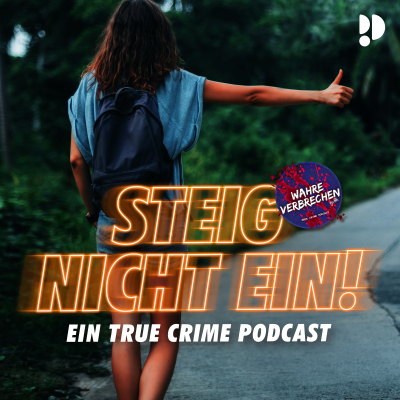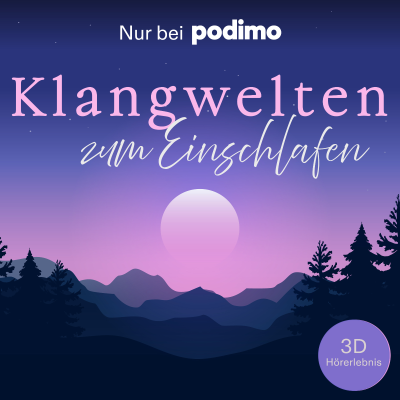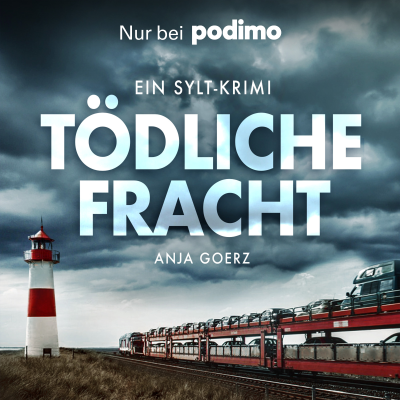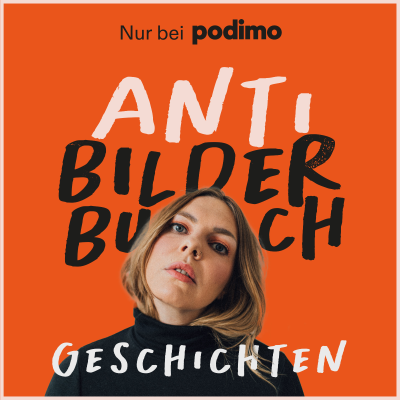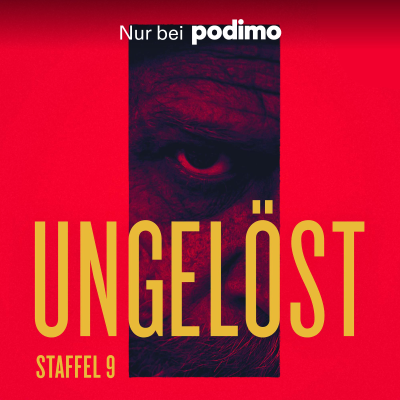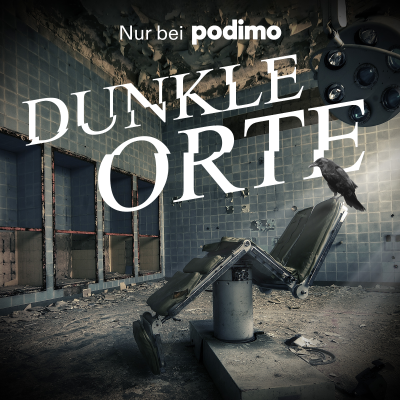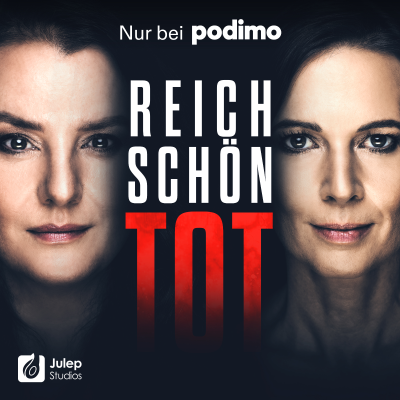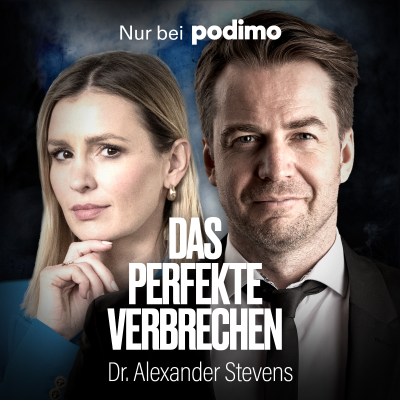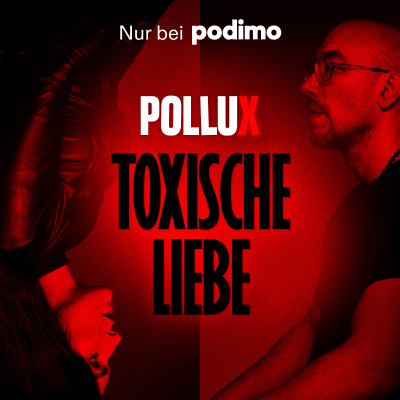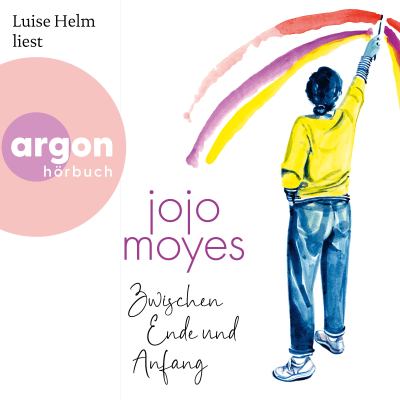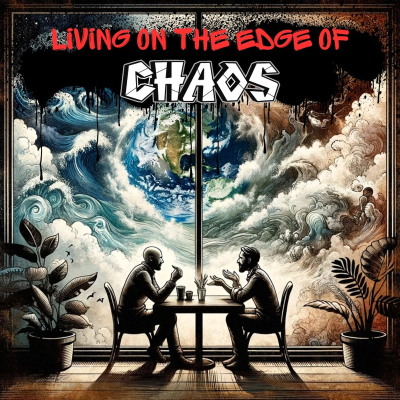
Living On The Edge of Chaos
Englisch
Kostenlos bei Podimo
Kostenlos hören bei Podimo
Starte jetzt und verbinde dich mit deinen Lieblingspodcaster*innen
- Vertraut von über 1 Mio. deutschen Hörer*innen
- Über 1.000 lokale Podcasts und Shows – nur bei Podimo
- Keine Zahlung nötig
Mehr Living On The Edge of Chaos
“Living On The Edge of Chaos,” hosted by Aaron Maurer, is a podcast that takes listeners on an intellectual journey through various facets of education and technology. The show features conversations with experts and innovators like Kevin Eastman, former assistant coach for the Boston Celtics to Lori Mazor, who enlightens on the fusion of Artificial Intelligence and creativity , Brittany Blackwell, who discusses educator burnout and mental health , and Laura McBain, exploring the intersections of design and learning . Through these dialogues, listeners are provoked to ponder on the unfolding narrative of education, making it a unique platform for those curious about the evolving educational landscape. Grab your cup of coffee and join the convo!
Alle Folgen
233 Folgen224: Stop Using AI to Do More with Victoria Mensch
LISTEN & SUBSCRIBE: [Apple Podcasts] [https://podcasts.apple.com/us/podcast/living-on-the-edge-of-chaos/id438001112] | [Spotify] [https://open.spotify.com/show/6wVG91PsqbE7UE8sSPSGoT] | [YouTube] [https://www.youtube.com/playlist?list=PLUDkntwKJbAoNlttKaVx1-QoV8muC2Er5] | [Simplecast] [https://coffeechug.simplecast.fm/] KEY DISCUSSION POINTS AND INSIGHTS 1) AI TRANSFORMATION ≠ “ADD A TOOL”; IT’S “REDESIGN THE WORK” Victoria frames a common failure mode: organizations bolt AI onto existing workflows instead of questioning whether those workflows make sense in the first place, especially in knowledge work. Practical reframing for leaders: What is the purpose of this workflow? What decision is a human actually making here? What can be simplified or deleted before we automate anything? 2) THE BARRIER IS DROPPING SO THE “WHO CAN DO THIS?” CONVERSATION CHANGES The episode highlights how quickly AI is moving from specialist territory to broad accessibility (no-code tools, conversational interfaces), which raises the stakes for shared understanding, norms, and guardrails. 3) HIDDEN ADOPTION IS REAL AND IT CREATES RISK (AND A LEADERSHIP OPPORTUNITY) We discuss the reality that many people are already using AI quietly, which means schools and organizations need clarity and psychologically safe training environments. 4) BURNOUT WON’T BE SOLVED BY “MORE OUTPUT”; IT’S SOLVED BY “BETTER USE OF HUMAN TIME” A central point: if AI removes routine tasks but leaders refill that time with more routine tasks, nothing improves. The higher-order shift is using reclaimed capacity for work that builds culture and learning (coaching, reflection, feedback, relationship-rich instruction, better decisions). 5) START SMALL: EXPERIMENTATION IS A STRATEGY, NOT A SIDE QUEST Victoria repeatedly returns to “run the reps” thinking: pick a small use case, test it quickly, learn, and stack wins as data points. 6) EDUCATION LENS: ADVANCE THE MISSION BECAUSE AI IS NOT GOING AWAY You explicitly connect the conversation to school realities: the goal is not to “win AI,” but to move the mission forward in a world where AI is embedded into everything. ACTIONABLE TAKEAWAYS FOR TEACHERS AND LEADERS Run a 2-week “AI workflow audit” Pick one recurring task (newsletter, family comms, lesson resource creation, feedback bank). Map the current steps. Ask: Which steps are “human judgment” vs “human labor”? Create a “safe sandbox” norm One protected time block/week for staff to try a use case and report back. Focus on learnings, not performance. Name and support champions (formal or informal) Champions are “self-appointed” and momentum makers; don’t wait for a committee. Reinvest reclaimed time into the most human work Student conferencing, richer feedback loops, community-building routines, coaching conversations. RESOURCES AND LINKS Silicon Valley Executive Academy (SVEA) — program model centered on immersion and experience-based knowledge sharing. Silicon Valley Executive Academy [https://svexecutive.academy/about-silicon-valley-executive-academy?utm_source=chatgpt.com] Victoria Mensch (LinkedIn) — leadership and AI transformation writing. LinkedIn [https://www.linkedin.com/posts/victoria-mensch_the-real-silicon-valley-advantage-nobody-activity-7402772517847044096-mkBQ] Microsoft / LinkedIn Work Trend Index (AI at work + BYOAI) — useful framing for why hidden adoption and governance matter. Microsoft [https://www.microsoft.com/en-us/worklab/work-trend-index] SUGGESTED PAST EPISODES 216: Designing Trustworthy AI in K-12: NASA, Ethics, and Teacher Voice (David Lockett) — direct complement on governance, ethics, and implementation realities in schools. Podcasts [https://coffeeforthebrain.com/216/] 222: From Burnout to Better Questions – Human-Centered AI Adoption (Jackie Celske) — closely aligned with the burnout → redesign theme and the “people/process over tools” framing. Podcasts [https://coffeeforthebrain.com/222-2/] 218: Teaching What Can’t Be AI’d (John “Camp”) — matches the “reinvest in what’s human” thread (presence, discourse, competency-based learning). Podcasts [https://coffeeforthebrain.com/218/] SUPPORT THE SHOW If you found this episode valuable, please share it with a colleague and leave a review. Your support helps other educators and leaders discover the show.
223: Media Minimalism, Primary Sources, and Reclaiming Attention with Kira Shishkin
LISTEN & SUBSCRIBE: [Apple Podcasts] [https://podcasts.apple.com/us/podcast/living-on-the-edge-of-chaos/id438001112] | [Spotify] [https://open.spotify.com/show/6wVG91PsqbE7UE8sSPSGoT] | [YouTube] [https://www.youtube.com/playlist?list=PLUDkntwKJbAoNlttKaVx1-QoV8muC2Er5] | [Simplecast] [https://coffeechug.simplecast.fm/] Key Takeaways: Attention is a Superpower: Why losing the ability to focus is a loss of personal power, and how to safeguard your attention footprint. Primary Sources vs. Commentary: The importance of reading the original documents (like a Supreme Court opinion) rather than relying on biased analysis from talking heads. Quality of Thought: A three-step framework for better thinking: write it down, speak it to a human, and publish it publicly to face scrutiny. Bias for Action: Why you should ship "version zero" and fix it later, rather than waiting for perfection. The Power of Helping: How the simple act of helping one person without strings attached is the root of true entrepreneurship. GUEST CONNECTION Kira Shishkin on LinkedIn: Connect here [https://www.linkedin.com/in/kirashishkin/] informed Website: informed.now [https://informed.now] QUOTES > "News readership as the biggest investment you can make in yourself as an adult... keeping in touch with the world as espousing a curiosity for the environment in which you are." > "Attention is the human superpower. Whatever your superpower is, it gets unlocked through your attention." > "We focus on significance. We don't focus on things that will trigger you... We focus on things that are going to change the world." > "Perfect is the enemy of done... You would rather get a version zero out there in the world... than wait for double or triple the time to figure out some sort of perfect version." RESOURCES MENTIONED IN THIS EPISODE Try informed: Kira has set up a custom keyword for our listeners. You can text the word "coffeechug" to 844-406-INFO (4636) to test it out. Recent Feature: Check out informed on the front page of the International Business Times: infmd.co/ibt [http://infmd.co/ibt] Launch Post: Leave a supportive comment or repost on the informed launch post [http://infmd.co/ibt] to get a free month. SUPPORT THE SHOW If you enjoyed this episode, please consider sharing it with a friend or colleague who might benefit from these discussions. Your reviews and shares help me find new guests and perspectives to the show.
222: From Burnout to Better Questions – Jackie Celske on Human-Centered AI Adoption
ACCESS THE SHOW All platforms & past episodes: https://coffeeforthebrain.com/podcasts/ [https://coffeeforthebrain.com/podcasts/] Direct Link to This Episode: https://coffeechug.simplecast.com/episodes/221 [https://coffeechug.simplecast.com/episodes/221] LISTEN & SUBSCRIBE: [Apple Podcasts] [https://podcasts.apple.com/us/podcast/living-on-the-edge-of-chaos/id438001112] | [Spotify] [https://open.spotify.com/show/6wVG91PsqbE7UE8sSPSGoT] | [YouTube] [https://www.youtube.com/playlist?list=PLUDkntwKJbAoNlttKaVx1-QoV8muC2Er5] | [Simplecast] [https://coffeechug.simplecast.fm/] EPISODE SNAPSHOT Jackie’s journey from burnout and “doing all the things” to rebuilding life and work around what actually matters Why 80% of AI projects fail—and what schools and organizations can do differently The “Disney trash” lesson: stop chasing flashy AI and start with the boring, high-impact problems Women, confidence, and creating safer spaces to learn and lead with AI “...our value is in who we are, not in what we do”: using AI to rediscover identity, not erase it Practical, non-tech-bro ways to play with AI in your daily life (email, trip planning, speaking practice, and more) EPISODE HIGHLIGHTS Jackie’s story of walking away from a job that broke her health and identity and rebuilding life and work from Nashville Why 2023 felt like a turning point with ChatGPT and how it pulled her from digital marketing into AI adoption and strategy What “AI adoption” actually means (beyond tools) and why communication, culture, and expectations matter more than features The harsh reality: most AI projects fail, not because of the tech, but because of people, processes, and misaligned outcomes The “Disney trash” example: how starting with boring, high-volume, repetitive tasks beats chasing sexy, impossible AI dreams A compassionate look at why many women hesitate to jump into AI and how community, safety, and “permission to not know” change that Everyday use cases Jackie loves: practicing presentations with AI video, drafting hard emails, energizing workouts, travel planning, and using voice tools in playful ways The deeper theme: AI shows us how not-special our tasks are, but it also clarifies how irreplaceable our humanity is CONNECT WITH JACKIE CELSKE LinkedIn: https://www.linkedin.com/in/jacquelinecelske/ [https://www.linkedin.com/in/jacquelinecelske/] Website – The Prose Co.: https://www.theproseco.com/ [https://www.theproseco.com/] Instagram: https://www.instagram.com/theproseco/ [https://www.instagram.com/theproseco/] Facebook: https://www.facebook.com/theproseco [https://www.facebook.com/theproseco] QUOTE > Being human is your superpower RESOURCES * Rand study 80% AI projects fail [https://www.rand.org/pubs/research_reports/RRA2680-1.html] * Women are avoiding AI: HBR [https://www.library.hbs.edu/working-knowledge/women-are-avoiding-using-artificial-intelligence-can-that-hurt-their-careers] * Gender Divide [https://d3.harvard.edu/the-gender-divide-in-generative-ai-a-global-challenge/] SUPPORT THE SHOW If this conversation helped you pause, reflect, or think differently about AI and learning, please share it with a colleague or friend. Leaving a review or tagging the show helps others discover these important conversations.
221: Evolving Beyond the Hype: AI, Humanity, and the Cost of Progress
Access the Show All platforms & past episodes: https://coffeeforthebrain.com/podcasts/ [https://coffeeforthebrain.com/podcasts/] Direct Link to This Episode: Listen & Subscribe: [Apple Podcasts] [https://podcasts.apple.com/us/podcast/living-on-the-edge-of-chaos/id438001112] | [Spotify] [https://open.spotify.com/show/6wVG91PsqbE7UE8sSPSGoT] | [YouTube] [https://www.youtube.com/playlist?list=PLUDkntwKJbAoNlttKaVx1-QoV8muC2Er5] | [Simplecast] [https://coffeechug.simplecast.fm/] EPISODE HIGHLIGHTS Revisiting Moxie and how closing it deepened their understanding of AI, ethics, and learning The balance between innovation and honesty when your business depends on what you critique How technical knowledge led them from excitement to skepticism Moxie “AI Sandwich” workflow and how to use AI to brainstorm and refine while keeping the human in the middle Kimberly’s story of watching her husband evolve from using AI for tests to using it to write creative scripts for science students The hidden costs of AI tokens, data, energy, attention, and what it means to “pay the real price” Why the most valuable outcomes of AI may be emotional: motivation, reassurance, and calm Rethinking productivity: what if being “more efficient” isn’t the goal? QUOTES On understanding AI as novice vs. expert > ....you can't think critically about something unless you are already an expert, unless you have some level of expertise. There came a point where we were experts enough to see… to think critically enough to say, oh, whoa, wait, hold up, hold up. What is it worth to you? > ....what would I be willing to pay if I had to pay the true cost of this? Because right now, our use of AI is fully subsidized by venture capital and these big tech companies. But if you had to pay the full cost of what that interaction was, if it's $75, would you pay for it? Power of Choice > ....what are you saying no, and what are you saying yes to? And not just in terms of financial, but all resources. Time, energy, serenity. I think about serenity as a resource for me, because I need to refill my cup. I cannot just be a yes girl, because I somehow ended up one.....what are you willing to pay for in all the different ways we pay for things, and are you saying yes to too many things? Mirage of Productivity to Save Time > And it's just crazy to think that this is gonna give us more time, and we're gonna be more productive and more efficient. No, you're just gonna get a new task......this mirage of we'll reach so much productivity that we'll have a leisure class, it'll be a four-day work week. It's never happened, and what do you know? It's not going to happen, because that is not the culture and the system that we are in, which prioritizes growth at all costs, no matter what. RESOURCES Episode 207 [https://coffeeforthebrain.com/207-2/]: The Importance of Good Writing, Curiosity, Bravery, and the Process of Living Practical AI for Educators PD for Higher Education Session 3 Breakout With Kimberly [https://www.youtube.com/watch?v=heHzPWR_Fus&feature=youtu.be] Jessica on LinkedIn [https://www.linkedin.com/in/jessicaparker/] Kimberly on LinkedIn [https://www.linkedin.com/in/kimberlypacebecker/] Link: AI Sandwich Graphic by Moxie [https://www.linkedin.com/posts/jessicaparker_academicwriting-aiineducation-highered-activity-7288589479454388224-f82J/] Book: Empire of AI [https://amzn.to/3WSqd6o] Substack: Women Writin' 'Bout AI [https://substack.com/@womenwritinboutai] Podcast: Women Talkin' 'Bout AI [https://open.spotify.com/show/1bI1AYeiisN35FPvYpqRHw] SUPPORT THE SHOW If this conversation helped you pause, reflect, or think differently about AI and learning, please share it with a colleague or friend. Leaving a review or tagging the show helps others discover these important conversations.
220: Finding Flow Through Curiosity: A Conversation with The Curiosity Experiment’s Clare Inkster
ACCESS THE SHOW All platforms & past episodes: https://coffeeforthebrain.com/podcasts/ [https://coffeeforthebrain.com/podcasts/] Direct Link to This Episode: Listen & Subscribe: [Apple Podcasts] [https://podcasts.apple.com/us/podcast/living-on-the-edge-of-chaos/id438001112] | [Spotify] [https://open.spotify.com/show/6wVG91PsqbE7UE8sSPSGoT] | [YouTube] [https://www.youtube.com/playlist?list=PLUDkntwKJbAoNlttKaVx1-QoV8muC2Er5] | [Simplecast] [https://coffeechug.simplecast.fm/] EPISODE HIGHLIGHTS * Clare shares how a career in behavioral and neuroscience research led her to question whether her work truly served the world and how that moment of disconnection sparked a master’s in Applied Positive Psychology and a deep dive into curiosity interventions. She explains the science behind curiosity and well-being like how curiosity broadens perspective, strengthens creativity, and helps us find meaning and purpose. Clare describes creating “Curiosity Thursdays”, unpaid days dedicated to exploration and learning and how intentional time for curiosity fuels new thinking. The conversation explores balancing curiosity with productivity: scheduling curiosity intentionally, matching brain energy to task type, and building rhythms like “Wonder Wednesday” meetings to re-ignite collective wonder. Clare unpacks top-down vs. bottom-up curiosity and purposeful learning versus open, unstructured noticing and why both are essential for creativity and growth. She discusses the intersection of curiosity and AI, including how awareness and questioning keep our brains engaged rather than passive. Clare introduces her Curiosity Sprints that are two-week experiments inspired by Agile thinking designed to make learning iterative, joyful, and evidence-based. We reflect on how curiosity can help redefine success, shift from “achievement” to “enjoyment,” and re-learn the lost art of being bored. FEATURED QUOTES > On the necessity of intention > “I had to intentionally carve out that time, because otherwise something more important would always be there. There has to be an aspect of intentionality around curiosity in the world we live in today.” > On balancing curiosity and efficiency > “I’ve given myself permission, and I’ve actively chosen to be curious. Know the importance of it, be purposeful about it—and then schedule it into your day.” > On curiosity and AI > “Curiosity actually amplifies memory. So if we can ignite our curiosity before we go in and ask a question of an AI, we’ll remember more and learn more deeply.” > On slowing down and not being busy > “We are so busy all the time that we don’t really have any hobbies, or we don’t know what our hobbies are anymore. And it’s like, I don’t know how you find that when you’re always busy—you can’t listen, you can’t hear, you can’t find that creativity that’s bubbling up inside you.” > On redefining success > “I stopped asking, ‘What do I need to achieve this week?’ and started asking, ‘How can I make this week as enjoyable as possible?’ It was a shift from achievement to enjoyment—and it changed how I lived each day.” > On curiosity as practice > “When I wanted to make changes in my life, I didn’t know how. I just turned them into two-week sprints and figured it out. It’s empowering—because you’re building confidence in your own ability to learn and grow.” RESOURCES & LINKS * Clare Inkster on LinkedIn [https://www.linkedin.com/in/clare-inkster-1729a017/] * The Curiosity Experiment [https://www.thecuriosityexperiment.co.uk/] * The Curiosity Experiment on Instagram [https://www.instagram.com/the_curiosity_experiment/] * Research and studies on amount of questions we ask through the ages [https://amorebeautifulquestion.com/why-do-kids-ask-so-many-questions-but-more-importantly-why-do-they-stop/#:~:text=Curious%20kids:%20Where%20do%20all,seeking%20explanations%2C%20not%20just%20facts.] * Clare email address clare@thecuriosityexperiment.co.uk [clare@thecuriosityexperiment.co.uk]. * Global Curiosity Institute website to measure curiosity https://www.globalcuriosityinstitute.com/diagnostics [https://www.globalcuriosityinstitute.com/diagnostics] * Your Brain At Work [https://amzn.to/494Helc] Book * Top Down vs. Botton Up Processing Video [https://www.youtube.com/watch?v=HJm_IjyKECo&t=172s] or Article [https://www.structural-learning.com/post/top-down-processing-and-bottom-up-processing] * MIT Study: Your Brain on ChatGPT [https://www.media.mit.edu/publications/your-brain-on-chatgpt/] and Clare LinkedIn Post That Inspired My Question [https://www.linkedin.com/posts/clare-inkster-1729a017_chatgpts-impact-on-our-brains-according-activity-7341512043306319872-5Nzu?utm_source=social_share_send&utm_medium=member_desktop_web&rcm=ACoAAAXV1YoBkQ-dw3qZT5sGegwyVZAGJaJopvg] * Blog post about sprints [https://www.thecuriosityexperiment.co.uk/the-curiosity-experiment-sprint-one-retrospective/] * Satya Nadella article on culture of learn-it-alls [https://fortune.com/2024/05/20/satya-nadella-microsoft-culture-growth-mindset-learn-it-alls-know-it-alls/] SUPPORT THE SHOW If this episode helped you, share it with a colleague and leave a review. It helps more educators and leaders find the show.
